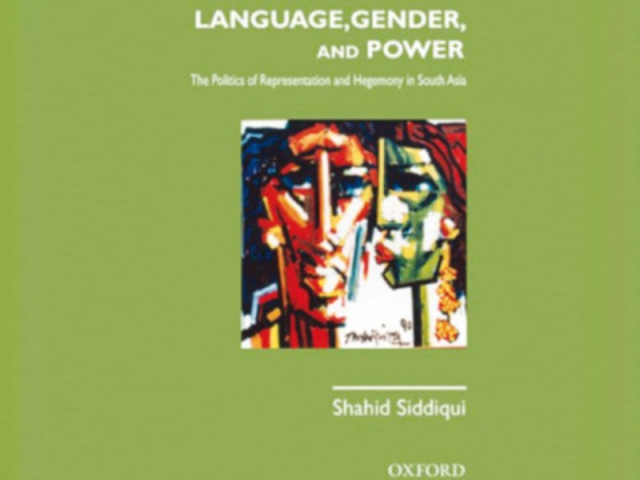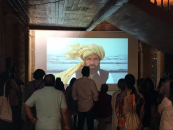Book review: Language speaks
The first step towards breaking stereotypes is changing the way we talk about them.

The first step towards breaking stereotypes is changing the way we talk about them.
In this new book (which is said to have been in the making for a decade), Dr Shahid Siddiqui provides a contextualised view of how language does not represent anything through its communicative function, but rather shapes our perception and consciousness. This gives it the power to change the way we think and perceive the world around us.
The book is simple and has been written keeping students in mind. It tackles complicated subjects like the control of power or construction of identity through language with immense simplicity. The book also addresses the study of language and its role in disseminating a particular idea of gender through literature and other cultural practices that include proverbs, sayings, jokes, as well as advertisement campaigns. It highlights the propagated desire of a particular kind of gender behaviour and how it is injected into the viewer or reader’s mind through the strategic use of language. The specific local examples such as associating modesty or docility with women which in turn reinforces gender stereotypes, make the concepts relatable and easy to understand.
The author also explores the use of language to represent gender in the educational material. In this part of the book, Siddiqui intensively dwells on the study of nursery rhymes, fairly tales for children and other educational practices which have been stereotyping women and limiting them to domestic roles for generations in the subcontinent.
The chapter, Language, Gender and Media which constitutes the larger part of this book, extensively studies and questions the role of the media in gender construction. The author analyses gender stereotypes in popular entertainment mediums such as advertisements, television plays, films and songs in a manner that presents his thesis in a chronological totality. The crucial argument here is that the representation of gender, of women through a certain kind of language used by the media also becomes the natural way of perceiving them, which may often be far from the truth.

However, the book concludes on the idea of language as a form of resistance which can be equally powerful and influential. The author proposes multiple reforms in our personal and collective understanding of language in order to change the sociopolitical understanding of our realities.
The strongest element of the book is the fact that it deals with the interrelationship of language, gender and power in the context of the subcontinent and is the first of its kind from the local academia. While the book builds its thesis on the significant theoretical insights provided by twentieth century thinkers such as Michel Foucault, Edward Said, Roman Jakobson, Simone de Beauvoir and Judith Butler on the language-gender issue, it also aims at reforming the indigenous socio-cultural practices in order to make language an active agent that shapes human discourse in this part of the world.
Aqsa Ijaz is a lecturer of Literature and Cultural Studies at Beaconhouse National University, Lahore. Write to her at amtalaqs@gmail.com
Published in The Express Tribune, Sunday Magazine, January 5th, 2015.



















COMMENTS
Comments are moderated and generally will be posted if they are on-topic and not abusive.
For more information, please see our Comments FAQ